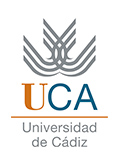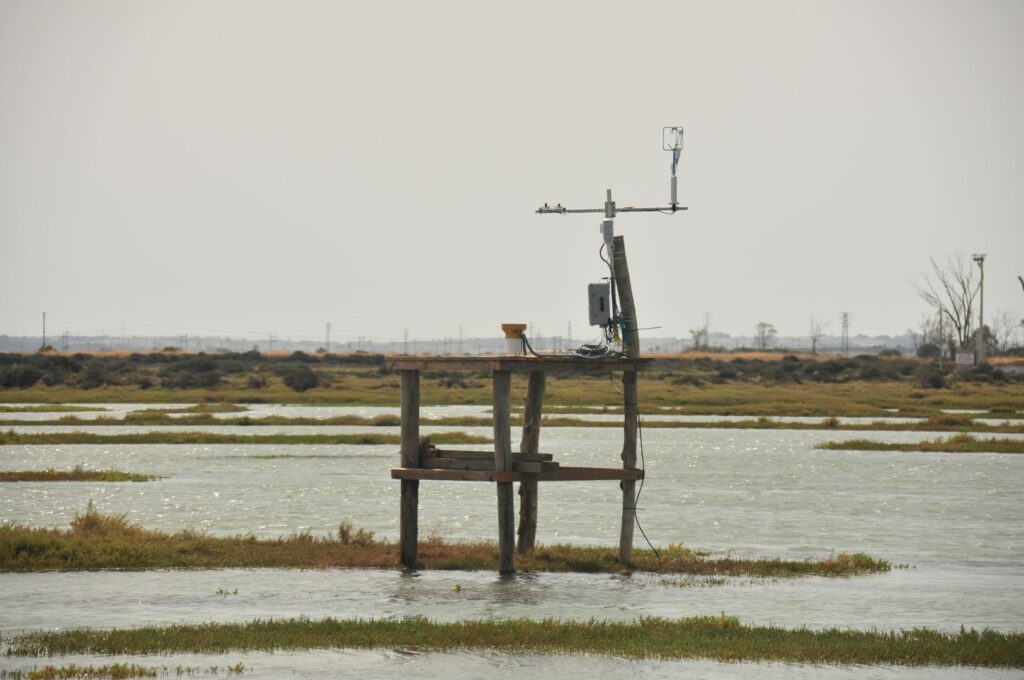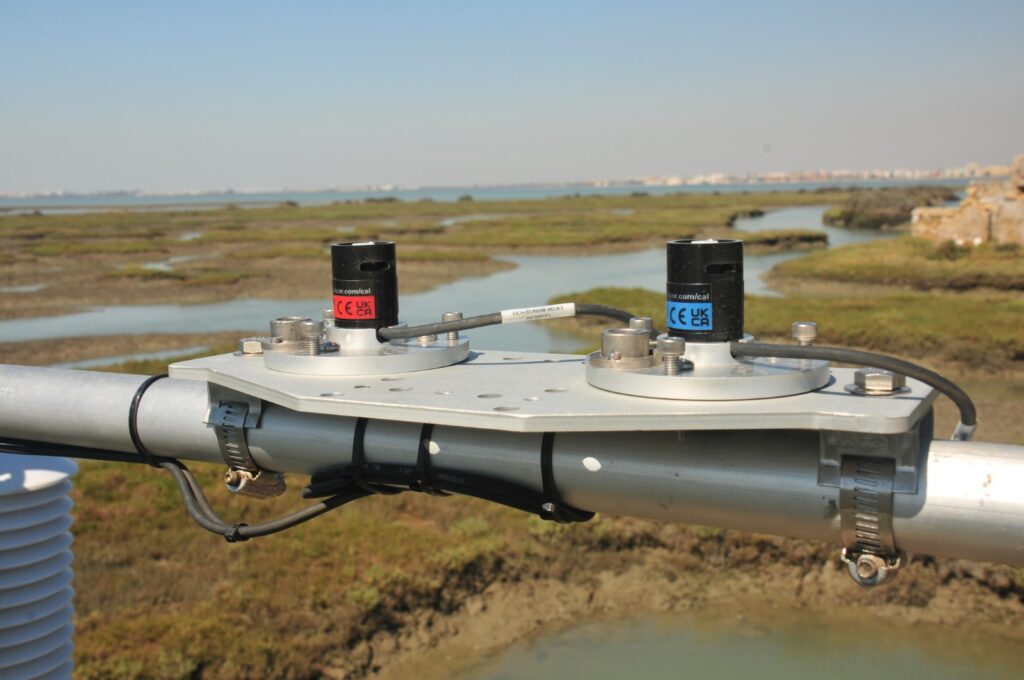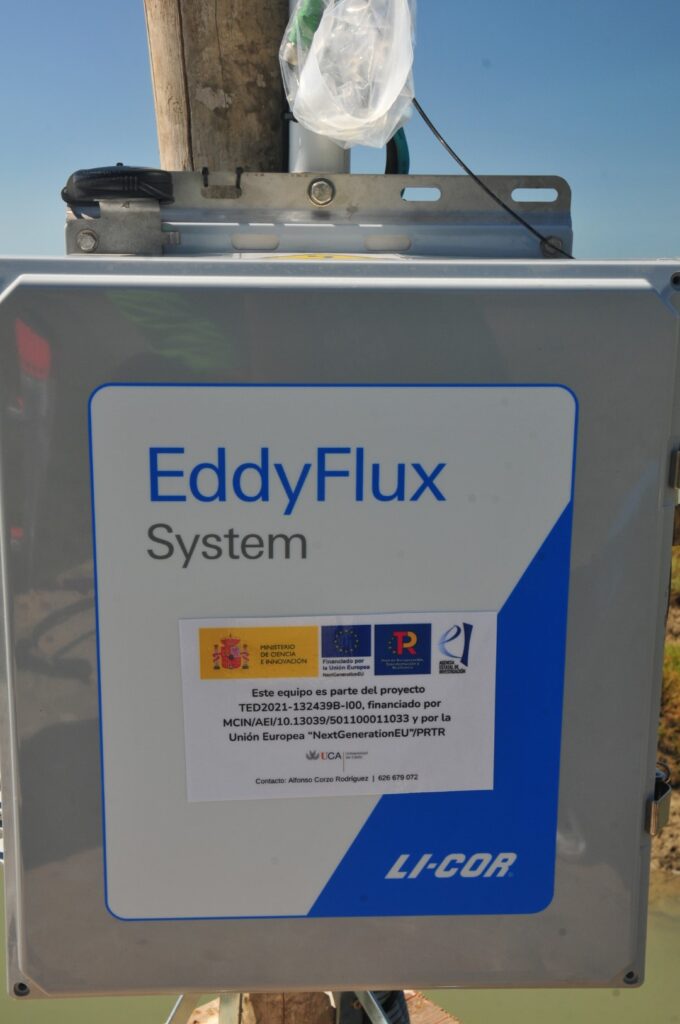The University of Cádiz (UCA) has taken a pioneering step in climate change research with the installation of Spain’s first Eddy Covariance tower dedicated to studying blue carbon sequestration in intertidal ecosystems.
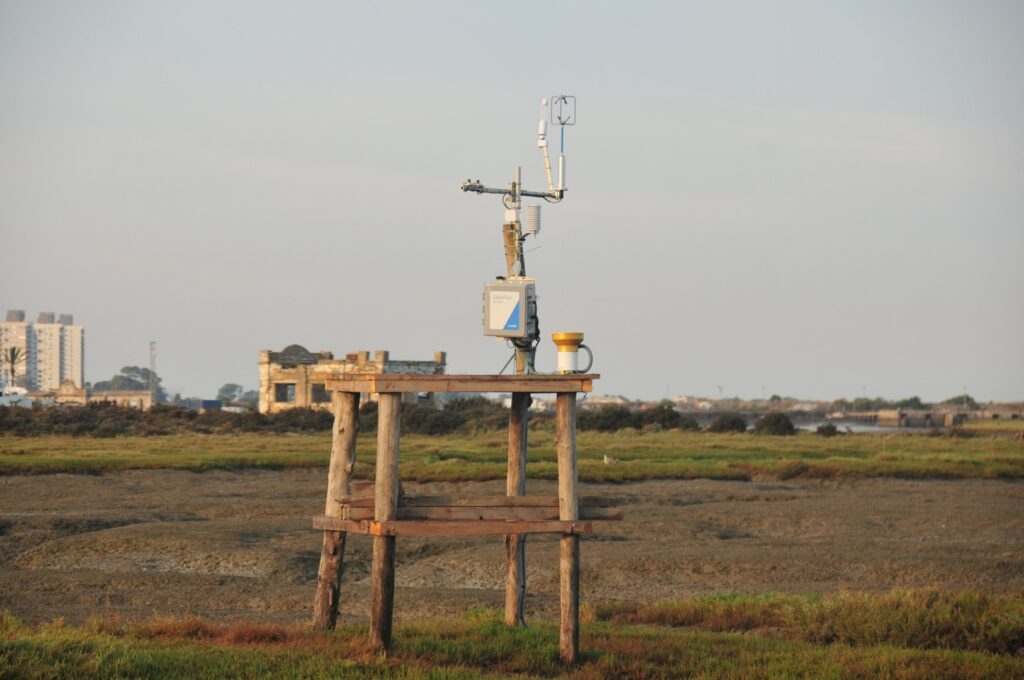
This cutting-edge infrastructure is part of the RICAS project (Restoration and Rewilding of Saltmarshes as Nature-Based Solutions against Climate Change), funded by the European Union’s Recovery and Resilience Facility (NextGenerationEU). The project is led by Dr. Alfonso Corzo and Dr. Sokratis Papaspyrou from UCA’s Department of Biology.

Marine Rewilding: Restoring to Recover Ecological Functions
The saltmarshes and salterns of Cádiz Bay, like many coastal areas in Europe, have undergone centuries of human transformation — from artisanal and industrial saltworks to aquaculture and agricultural use.
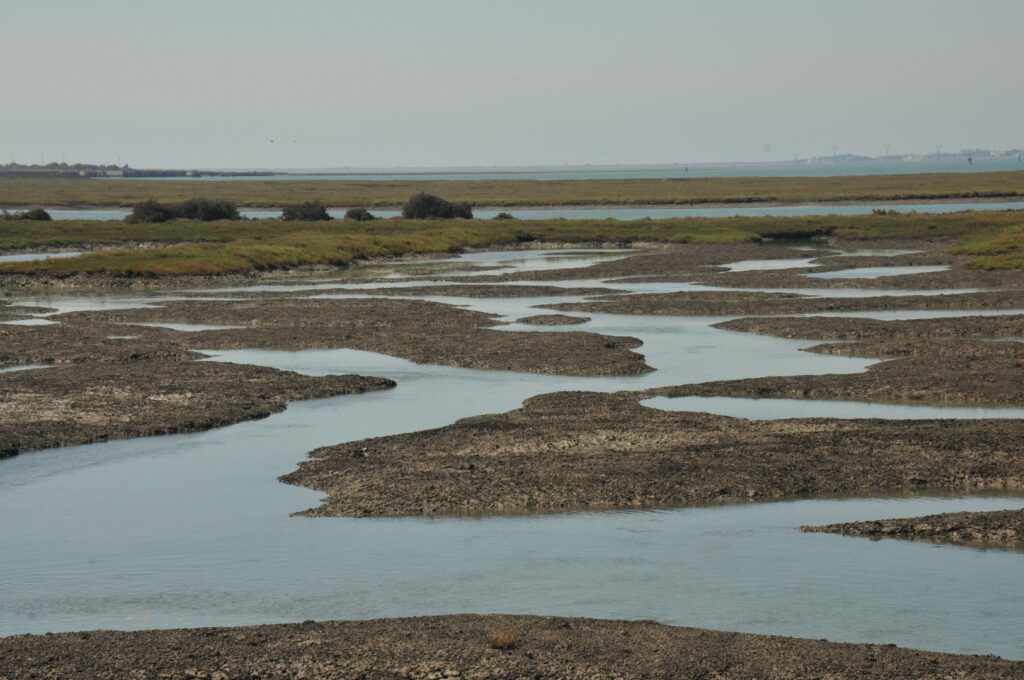
The rewilding approach seeks to reverse this degradation by restoring the original ecological functions of these ecosystems. Within the framework of the EU Nature Restoration Law, such actions are recognized as Nature-Based Solutions (NBS), essential to halt biodiversity loss and address the impacts of sea-level rise, coastal erosion, and climate change.
A One-of-a-Kind Infrastructure
The new Eddy Covariance tower will enable real-time measurement of carbon, water, and energy fluxes between the marsh surface and the atmosphere. Using this high-precision technology, researchers will quantify the net carbon balance of different marsh types — natural, abandoned, or under restoration — with unprecedented detail in Spain.
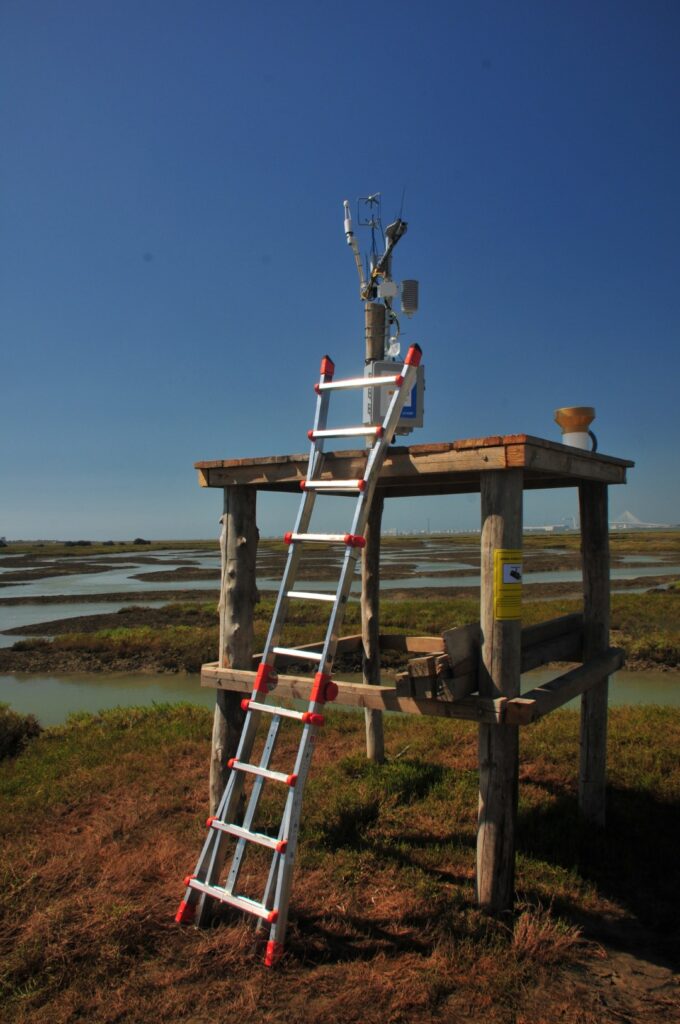
These continuous observations will help reduce existing uncertainties in estimating blue carbon sequestration, providing key insights into how tidal marshes contribute to climate change mitigation.
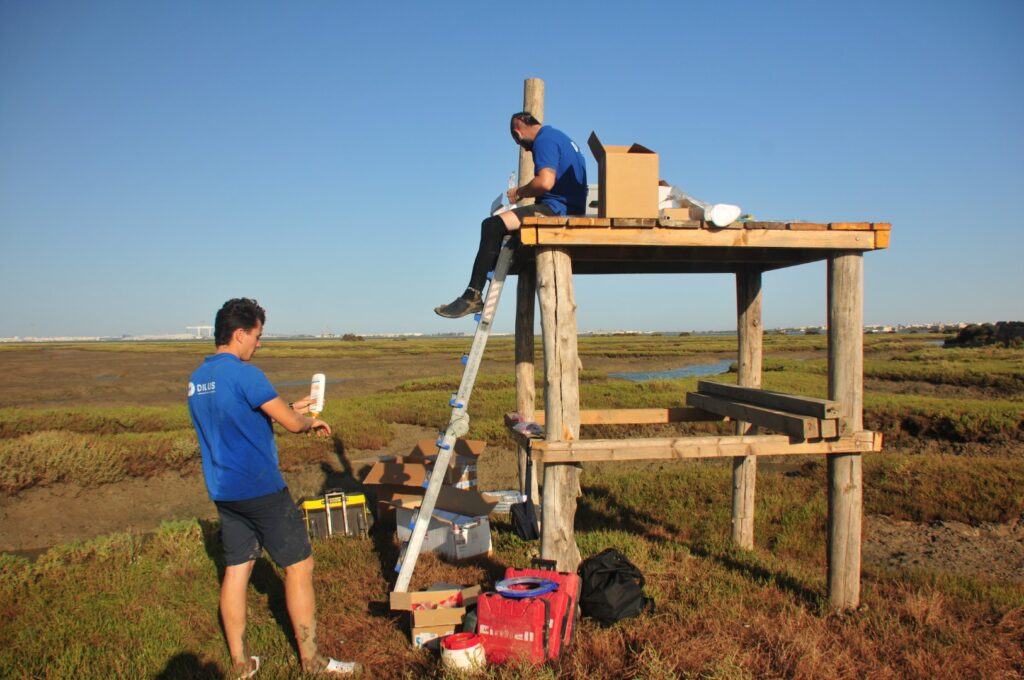
Science, Environment, and a Sustainable Future
The RICAS project combines biogeochemistry, remote sensing, and numerical modelling in an interdisciplinary framework. A team of experts in coastal ecology, physical oceanography, and data engineering is working together to deliver scientific results with environmental and socio-economic impact.
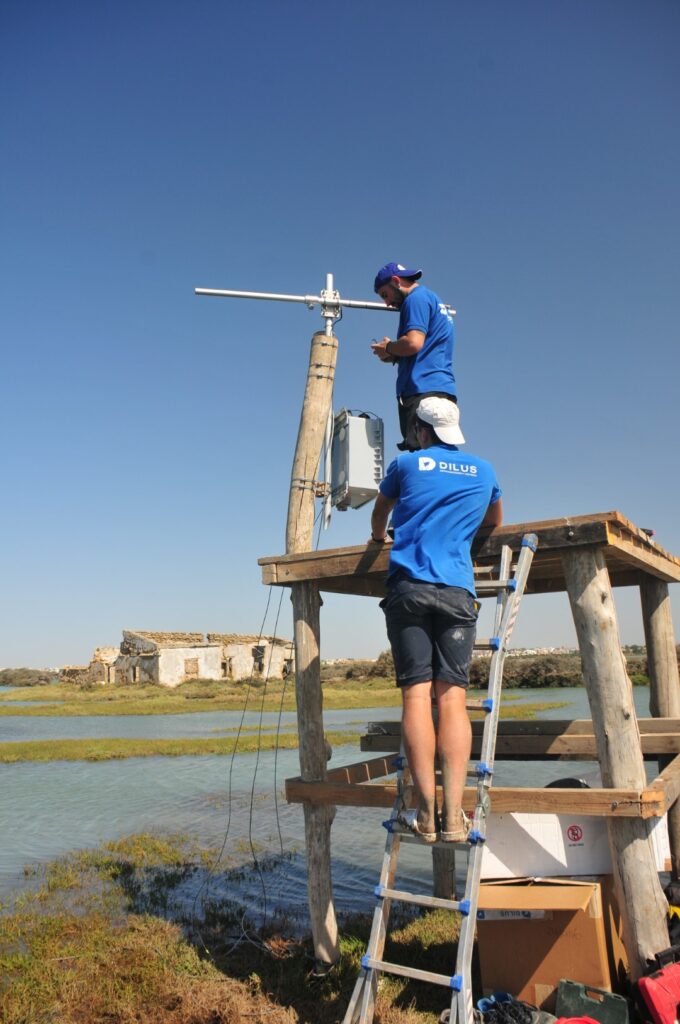
The project aims to:
- Improve quantification and modelling of carbon fluxes in tidal marshes.
- Develop management and restoration tools for the Bahía de Cádiz Natural Park and other intertidal zones.
- Support the creation of voluntary blue carbon markets, opening new funding opportunities for wetland conservation.
- Align local and national policies with EU and United Nations goals on biodiversity, climate neutrality, and ecosystem restoration.
“This tower marks a milestone for coastal research in Spain. For the first time, we’ll be able to track the carbon pulse of our marshes, understand their response to climate change, and design effective restoration strategies,” says Dr. Alfonso Corzo, principal investigator of the project.
